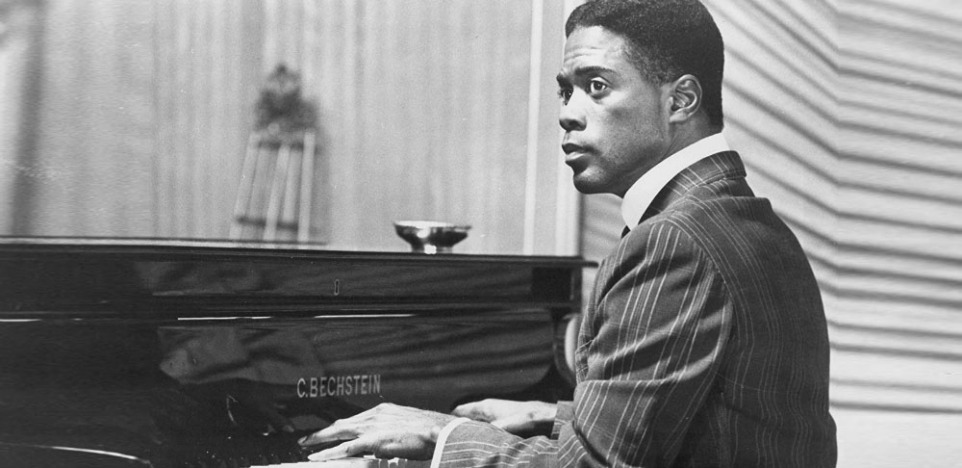In 1975. E. L. Doctorow's novel Ragtime was released in 1975 and went on to be a bestseller and award-winner. Some critics saw it as a highly innovative experiment in fiction; others labeled it a pseudo-historical novel; the author described it as "fictive non-fiction." Whatever one chooses to call it, Ragtime presents a thoroughly captivating reconstruction of the years 1906 - 1917, a time when capitalism was strong but being attacked by socialism and anarchism, a period when the gap between the rich and the very poor was large, and a time of burgeoning sexual liberation and calls for the emancipation of women.
Milos Forman (One Flew Over the Cuckoo's Nest) is the director of this robust story that demanded to be brought to the screen. He has commented: "This is a canvas of an era that mirrored all the wonderful contradictions this country is filled with. It was a book filled with information, imagination and social commentary." The fluid and vivid cinematography of Miroslav Ondricek titillates us with images that convey the energy and the drama of these times of change.
Father (James Olson) is the head of an archetypal upper middle-class family in New Rochelle, New York. He's a manufacturer of flags and fireworks. Mother (Mary Steenburgen) defers to her husband in public but is apt to be very strong-willed in private. Other members of the family are Grandfather, the Little Boy, and Mother's Younger Brother (Brad Dourif), who is trying to define himself. One day a black baby is found in their vegetable patch. Sarah (Debbie Allen), the boy's mother, is soon discovered nearby. She reveals that she and the baby have been abandoned by her lover. The New Rochelle family decides to shelter them. Eventually, Coalhouse Walker, Jr. (Howard Rollins), an itinerant piano player, shows up and tries to effect a reconciliation with Sarah.
While this couple tentatively comes together, another one on the Lower East Side of Manhattan splits up. Tateh (Mandy Patinkin), a sidewalk peddler of silhouettes, and his Little Girl are forced to leave the city when he discovers that his wife has committed adultery. This Jewish immigrant moves to Philadelphia where he finds a job making picture-flip books.
Mother's Younger Brother, meanwhile, has lost his heart to Evelyn Nesbit (Elizabeth McGovern), an artist's model and chorus girl who seems to be a femme fatale. Harry K. Thaw (Robert Joy), her multimillionaire husband, is in prison for murdering Stanford White (Norman Mailer), one of New York's most famous architects. The reason for his act — he was jealous because White had once been Evelyn's lover. Younger Brother's liaison with the attractive and sexually free actress doesn't last very long. After her husband's trial, they go to her apartment and find the lawyers waiting to pay her off for testifying favorably about her husband. But instead of the million dollars promised by Harry's mother, all Evelyn gets is $20,000. The young woman goes back into show business.
Coalhouse, now earning good money playing ragtime in Harlem, comes to New Rochelle and proposes to Sarah. They joyously plan the wedding. But driving back to the city in his new Model T Ford, the proud and well-mannered black man is stopped by some volunteer firemen. Led by the bigoted Fire Chief Conklin (Kenneth McMillan), they vandalize his car. Coalhouse does not see their actions as a simple practical joke. When he refuses to leave until the automobile is cleaned, he is taken to jail. Afterwards, seeking legal satisfaction, Coalhouse learns that he has no recourse at all. Everyone, including a black lawyer, tells him to cool it. But the ragtime pianist does not feel that he can marry Sarah until his car and dignity are restored.
Sarah rushes to a political rally to tell Vice President Fairbanks her lover's story. She is killed by security guards. Coalhouse, angry and grieving, next demands that the Fire Chief be turned over to him and that his Model T be returned in its original condition. When nothing happens, he leads a band of armed men against the firehouse; several volunteers are killed. Younger Brother joins Coalhouse and offers his special talent for making bombs. The group takes over the J. P. Morgan Library in New York City that is filled with priceless art treasures. They wire the place with bombs and repeat Coalhouse's demands.
Father and Mother takes the little black baby and the rest of the family to Atlantic City to insure their safety. There Mother falls in love with Baron Ashtenazy, a.k.a. Tateh, now a director of silent movies. Father returns to the city to help those trying to pacify Coalhouse.
This movie will appeal to nostalgia buffs with its luxurious details of yesteryear; to culture lovers with its resonances into today's world; and to popular movie devotees with its interesting characters and action-packed plot. The film also packs a wallop with its fascinating portrait of three different classes and their inaction brought on by the surging events of the times.
